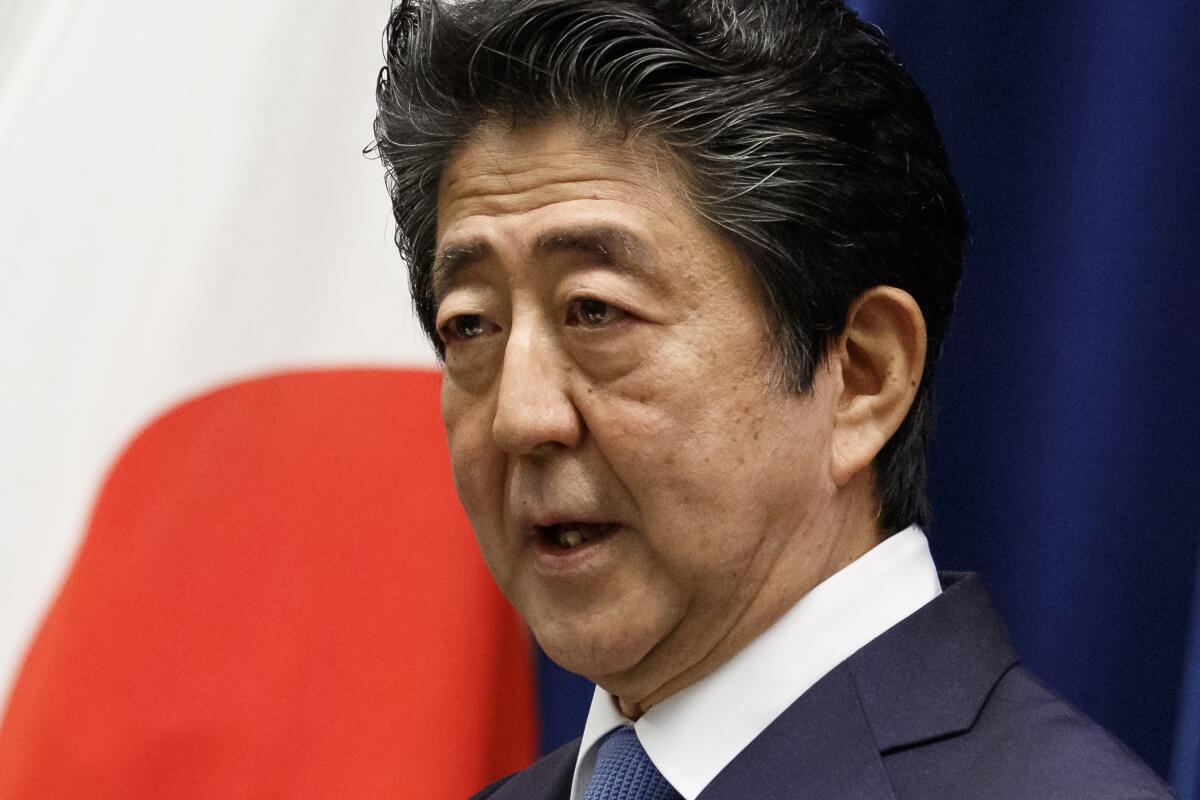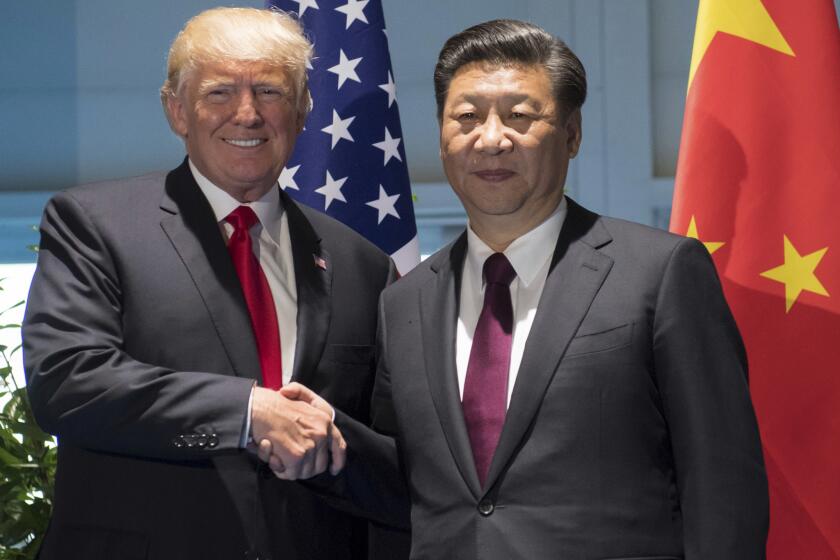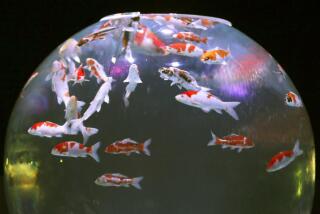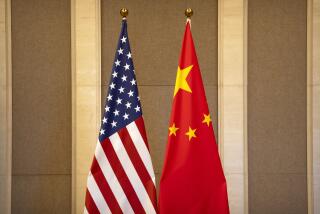Japan says China is using the coronavirus crisis to gain strategic superiority

- Share via
TOKYO — China is pushing harder to make territorial claims in the regional seas and even using the coronavirus crisis to expand its influence and take strategic superiority, posing a greater threat to Japan and the region, the Japanese government said.
The report highlighting the government’s defense priorities was adopted by Prime Minister Shinzo Abe’s Cabinet on Tuesday, less than a day after the Trump administration rejected outright nearly all of Beijing’s significant maritime claims in the South China Sea in a statement likely to deepen the U.S.-China rift.
The Abe government’s Defense White Paper 2020 highlights potential Chinese and North Korean threats as Japan tries to further increase its defense capability. Under Abe, Japan has steadily increased its defense budget and capability and purchased costly American arsenals.
Defense Minister Taro Kono recently scrapped the deployment of a pair of costly U.S. land-based missile intercepting systems because of technical issues, and Abe quickly announced his intention to revise Japan’s defense guidelines, possibly allowing Japan to go beyond its conventional defense-only role under the Japan-U.S. security alliance, including the possibility of acquiring a preemptive strike capability.
The white paper accused China of using propaganda, including spreading disinformation about the coronavirus.
“The COVID-19 pandemic may expose and intensify strategic competition among countries intending to create international and regional orders more preferable to themselves and to expand their influence,” the report said. “We need to closely watch their move with serious concern affecting the national security.”
The coronavirus is pitching the U.S. and China into a new Cold War -- a confrontation over ideology as well as trade and security. It’s happening partly because President Trump needs an issue to run on -- and it’s dangerous
As evidence, a Japanese Defense Ministry official noted that a Chinese Foreign Ministry official had accused the U.S. military of spreading the coronavirus in Wuhan and that Chinese media have touted herbal medicine as effective COVID-19 treatments. He spoke on the condition of anonymity, citing department rules.
The annual report said China has “relentlessly” pushed to “change the status quo” in the Asian seas, including sending 3,000-ton class government vessels into Japanese waters around Japan-controlled disputed East China Sea islands, called Senkaku in Japanese. Beijing also claims the islands and calls them the Diaoyu.
China is also pursuing its unilateral attempt in the South China Sea even more aggressively and even expanding its area of activity into more distant seas, a concern shared by the international community, the report said. The South China Sea problem “directly affects peace and stability in the Indo-Pacific region.”
“As China now boasts its capability and makes attempts to unilaterally change the status quo in many places, we must closely grasp what China’s intentions are,” Kono told a news conference Tuesday.
News Alerts
Get breaking news, investigations, analysis and more signature journalism from the Los Angeles Times in your inbox.
You may occasionally receive promotional content from the Los Angeles Times.
The report also cited North Korea’s continued development of its nuclear and other weapons program.
The North is “relentlessly pursuing increasingly complex and diverse modes of attack and is steadily strengthening and improving its attack capabilities,” the report said. It said North Korea since May 2019 has launched three types of new short-range ballistic missiles that use solid fuel and fly at lower altitudes than their conventional missiles that can breach Japanese missile defense system.
As Japan’s relations with South Korea have plunged to their lowest levels recently over wartime history, export control and territorial issues, the report prompted Seoul to protest Japan’s claims over a set of small South Korea-controlled islets between the countries. The report mentions the islands as part of Japanese territories that remain unresolved.
Foreign ministry spokesman Kim In-chul issued a statement urging Tokyo to “immediately” remove such claims from the report, saying that the islets called Dokdo in the Koreas and Takeshima in Japan are South Korean territory by international law.
Associated Press writer Kim Tong-hyung in Seoul, South Korea, contributed to this report.
More to Read
Sign up for Essential California
The most important California stories and recommendations in your inbox every morning.
You may occasionally receive promotional content from the Los Angeles Times.











